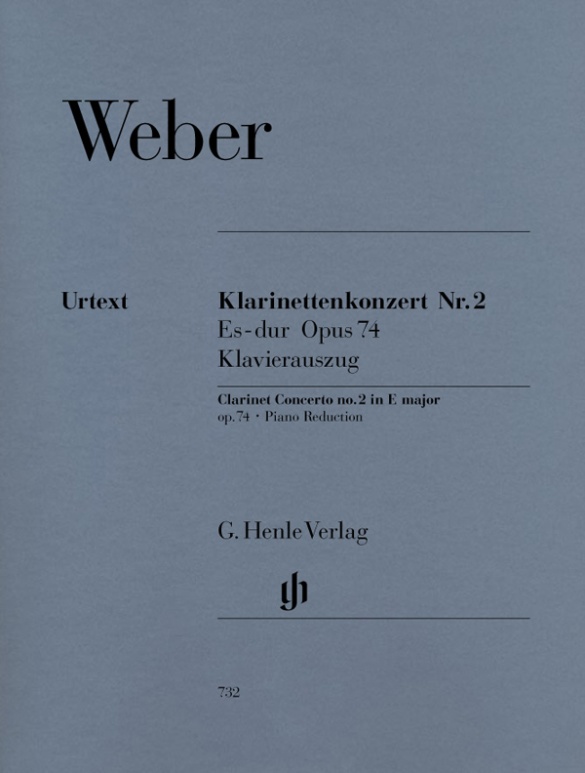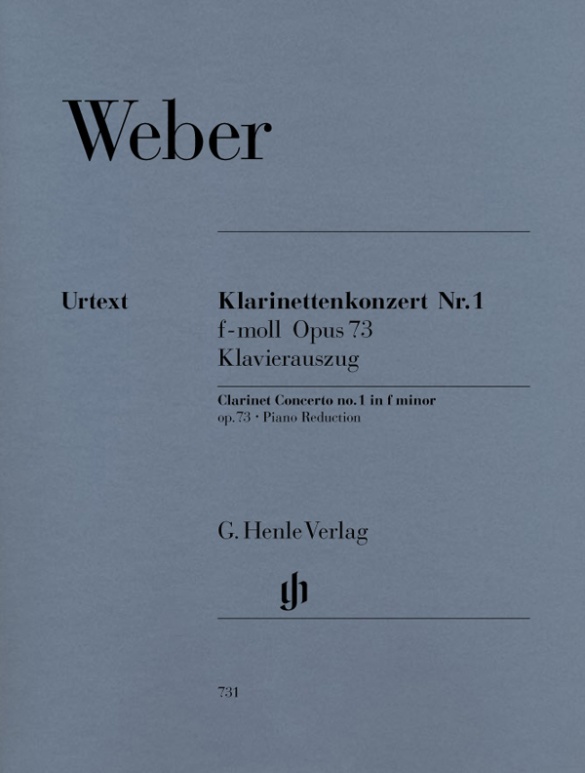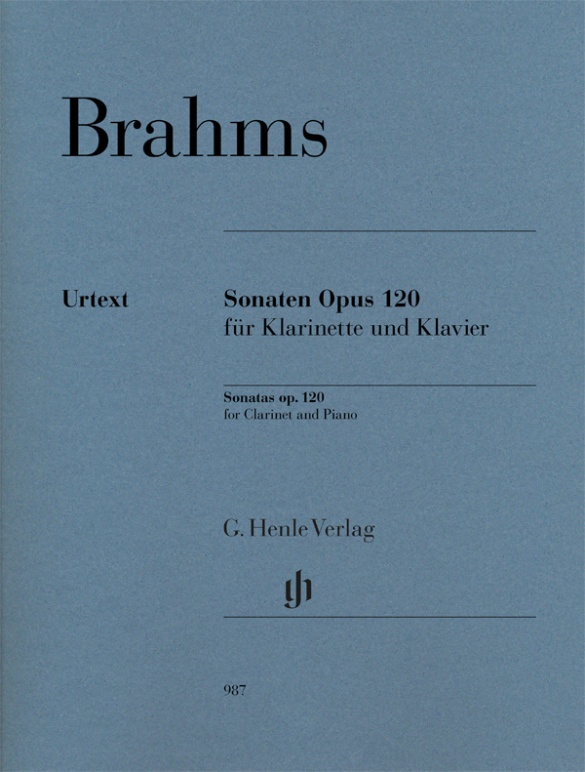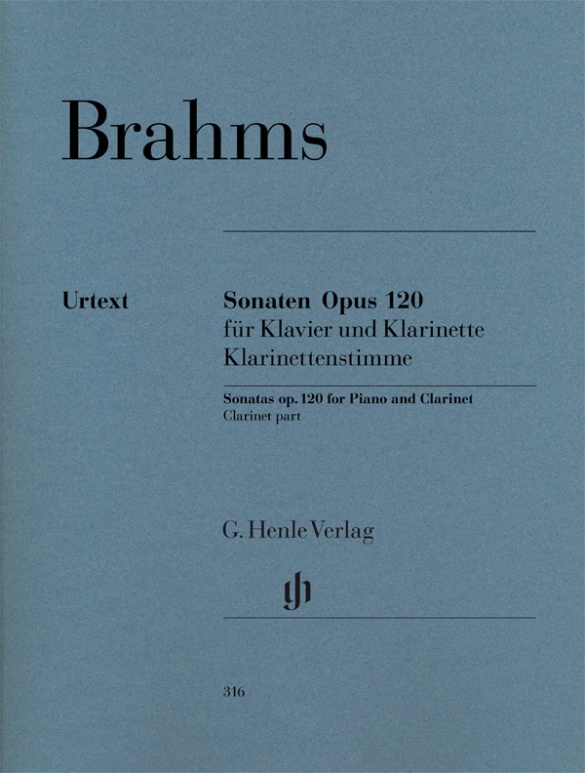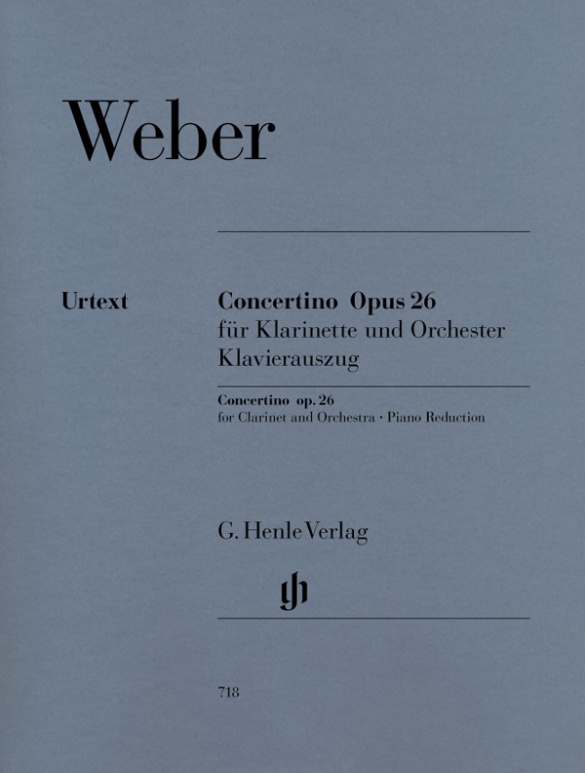

Carl Maria von Weber
Concertino op. 26 pour clarinette et orchestre
Avec ce «succès», très apprécié aussi des élèves clarinettistes, Henle ouvre la série des réductions pour piano des œuvres pour clarinette et orchestre de Weber. L’édition est accompagnée de deux parties: la partie Urtext de la version de Weber et une partie reprenant la version, beaucoup plus propagée, de Carl Bärmann.
CONTENU/DÉTAILS
(Explanation)
CONCERNANT LE COMPOSITEUR
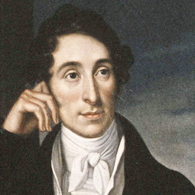
Carl Maria von Weber
L’un des compositeurs allemands d’opéras les plus importants avant Wagner, qui s’est investi par son œuvre et ses écrits en faveur d’un opéra allemand. Sa gloire repose sur le «Freischütz» qui a été très largement salué comme opéra national allemand. Ses œuvres instrumentales (œuvres pour orchestre, concertos pour instruments solistes, musique de chambre, œuvres pour piano) reposent en grande partie sur des modèles classiques, mais annoncent déjà l’esprit romantique.
| 1786 | Né le 18 ou 19 novembre à Eutin. Années de pérégrinations avec la «Webersche Schaupielergesellschaft» (Troupe des comédiens de Weber). Il joue de petits rôles d’enfant. |
| 1797 | La troupe se produit à Salzbourg où il prend, à partir de 1798 des cours de composition auprès de Michael Haydn. |
| 1800 | Création à Freiberg de son premier opéra romantico-comique «Das Waldmädchen» (La Fille des bois). |
| depuis 1803 | Années d’études à Vienne chez Georg Josef Vogler. |
| 1804–06 | Premier engagement comme maître de chapelle à Breslau (Wroclaw). |
| 1810 | Création de l’opéra romantique «Silvana» à Francfort-sur-le-Main. Concerto pour piano en Ut majeur n° 1 op. 11. |
| 1811 | Concertos pour clarinette en Fa mineur n° 1 op. 73 et en Mi bémol majeur n° 2 op. 74 commandés par Maximilien de Bavière; 1812 Concerto pour piano en Mi bémol majeur n° 2 op. 32. |
| 1813–16 | Directeur d’opéra et maître de chapelle du Théâtre des États à Prague. À partir de 1817 maître de chapelle à la cour de Dresde. |
| 1819 | Pièces pour piano «Rondo brillante» en Mi bémol majeur op. 62, «Invitation à la danse» en Ré bémol majeur op. 65, «Pollaca brillante» en Mi majeur op. 72. Trio pour piano, flûte et violoncelle en Sol mineur op. 63. |
| 1821 | Création à Berlin de l’opéra romantique «Le Freischütz» op. 77; son sujet et la musique lui valent d’être salué comme opéra typiquement allemand. Il intègre toutefois des éléments allemands, français et italiens. Konzertstück en Fa mineur pour piano et orchestre op. 79 qui ouvre la voie aux concertos en un mouvement du XIXe siècle. |
| 1823 | Création à Vienne d’«Euryanthe» op. 81. |
| 1826 | Création à Londres d’«Oberon». Il meurt le 5 juin à Londres. |
About the Authors

Norbert Gertsch (Editeur)
Dr. Norbert Gertsch, born in 1967 in Rheinkamp/Moers, studied piano solo at the Mozarteum in Salzburg and read musicology and philosophy at the Paris Lodron University in Salzburg and the Ruperto Carola University Heidelberg on a scholarship from the “Studienstiftung des Deutschen Volkes”. In 1996 he wrote his doctoral thesis on Ludwig van Beethoven’s Missa solemnis (as part of the New Complete Edition) under Ludwig Finscher.
In the following year, he began to work at G. Henle Publishers, initially as an editor for electronic publishing. After working on a two-year project (1999–2000) sponsored by the German Research Foundation (DFG) preparing a new Beethoven Catalogue of Works, he became a scholarly editor at G. Henle Publishers. In 2003 he became Editor-in-Chief, in 2009 Deputy Managing Director and Head of Publishing. As of 1 January 2024, the Executive Board of the Günter Henle Foundation has appointed Dr. Norbert Gertsch, as the new managing director, succeeding Dr. Wolf-Dieter Seiffert.
Gertsch has published many Urtext editions for G. Henle Publishers, including volumes for a new edition of Beethoven’s Piano Sonatas together with Murray Perahia.
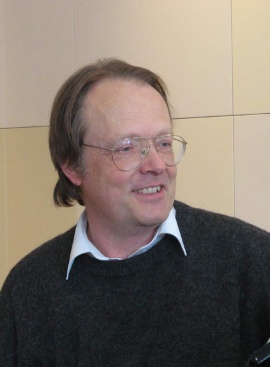
Johannes Umbreit (Réduction pour piano)
Prof. Johannes Umbreit studied the piano at the Musikhochschule in Munich. From 1987 onwards he was a regular accompanist at courses given by Wolfgang Schneiderhan, Thomas Brandis, Ljerko Spiller, Igor Ozim, Olga Woitowa, Ernő Sebestyén, Walter Nothas, F. Andrejevsky, Denis Zsigmondy and Zakhar Bron amongst others. He has appeared in numerous radio and TV broadcasts and plays chamber music with members of the Bavarian State Orchestra, the Munich Philharmonic Orchestra and the Bavarian Radio Symphony Orchestra.
He is on the jury of different international competitions and has been invited to several international music festivals. Umbreit was a teacher for almost ten years at the Musikhochschule in Munich and at the same time a lecturer for chamber music and piano accompaniment at the Richard Strauss Conservatory. Since 2008 he has been a lecturer at the Hochschule für Musik und Theater München. As the long-serving managing director of the Richard-Strauss-Gesellschaft, he was made an honorary member of the board in 2009. In May 2011, the Bavarian Minister of Culture appointed Johannes Umbreit an honorary professor of the Hochschule für Musik und Theater München on the suggestion of its academic senate.
Informations sur la sécurité du produit

G. Henle Verlag
Vous trouverez ici des informations sur le fabricant du produit.G. Henle Verlag e.K.
Forstenrieder Allee 122
81476 München
Allemagne
info@henle.de
www.henle.com
Si tratta di una importante e quasi definitiva edizione a stampa che i clarinettisti più attenti dovrebbero consultare per operare delle scelte esecutive consapevoli.
I Fiati, 2003recommandations
autogenerated_cross_selling
Autres éditions de ce titre
Autres éditions de ce titre


